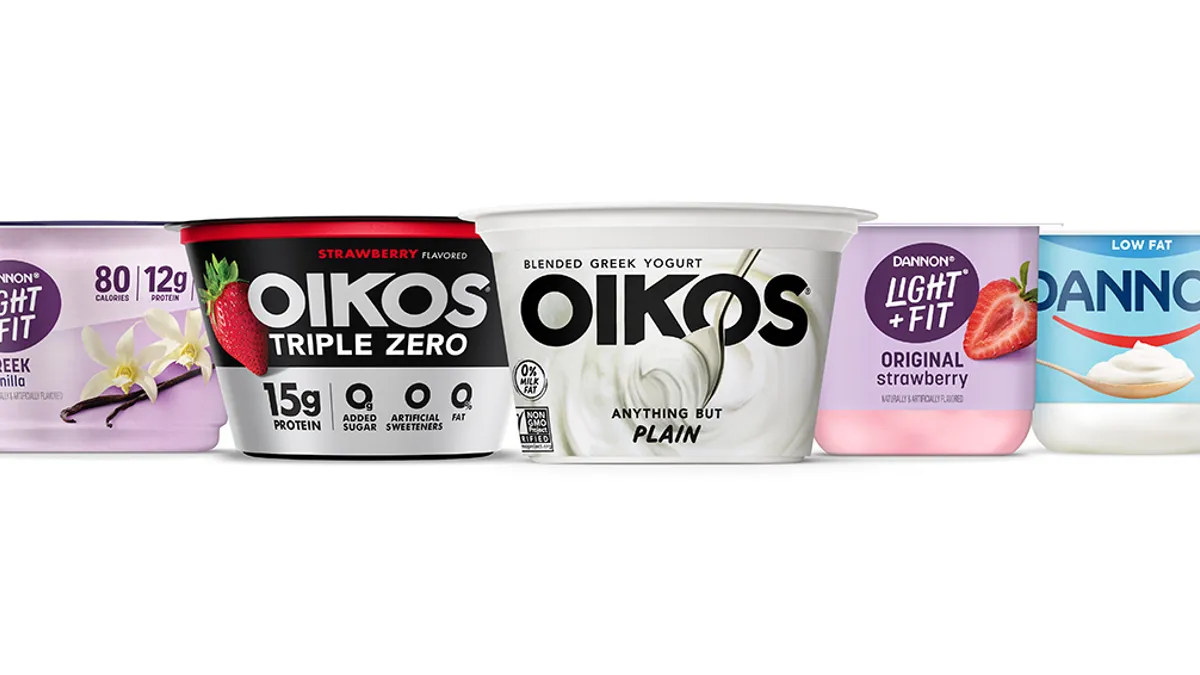Dive Brief:
- Danone is entering a partnership with Microsoft in order to integrate AI throughout its supply chain. Danone Microsoft AI Academy aims to train 100,000 of the yogurt maker’s employees to gain skills useful in “the AI-driven economy,” the company announced Wednesday.
- The dairy business said the program will include initiatives for its workforce to boost their experience with AI, including the use of predictive forecasting and real-time adjustments to streamline its operations.
- The program builds upon Danone’s Danskills, launched recently to “upskill and reskill” workers for jobs of the future. The company said 50,000 of its employees are already able to use AI tools like Microsoft Copilot, a large language model chatbot.
Dive Insight:
Danone’s partnership comes as food and beverage processors tap the fast-growing field of AI to meet goals and better compete with rival businesses.
Juergen Esser, the dairy company’s CFO, said in the press release the partnership will give it the technology needed to make its efficiency, consumer engagement and data analysis more robust.
“Working together is not just about technology; it’s about fostering a culture of continuous learning, innovation and performance across our organisation,” Esser said.
Danone’s collaboration with Microsoft — which has invested billions into AI through its partnership with ChatGPT maker OpenAI — gives the owner of Dannon and Stonyfield yogurt access to a suite of tools from a leading player in the tech space.
Beverage giant Coca-Cola is also turning to Windows founder to gain access to its AI capabilities. In April it announced a $1.1 billion investment in Microsoft’s cloud and AI services in order to boost efficiency and foster innovation.
Other beverage companies like PepsiCo are experimenting with novel applications, like an AI Hydration Coach assistant for Gatorade consumers.
Businesses in the food space are turning to AI to make their products more appealing to consumers. Food giant Unilever is incorporating the technology in order to improve the shelf life, texture and taste of products, which has led to the launch of items like Hellman’s Vegan Mayonnaise and Knorr Zero Salt Cube.
Kellanova, the snacking company which resulted from the split of Kellogg’s businesses last year, is using machine learning to forecast demand for its products and adjust its inventory accordingly.














